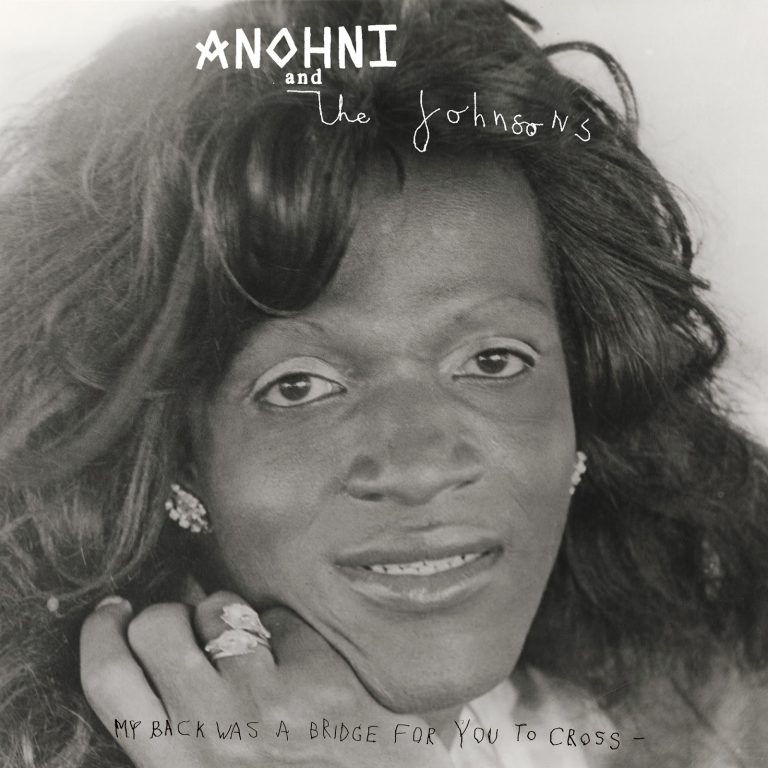No pride for some of us without liberation for all of us.
–Marsha P. Johnson
No justice, no peace.
–slogan that originated in 1986, following the murder of Michael Griffith.
Walt Whitman may not be the first figure who comes to mind when considering the history of diversification. That said, his 1855 edict “I contain multitudes” is foundational to American poetics and a touchstone in the process of multiculturalism. Drawing from his pantheistic forebears Blake, Emerson, and Thoreau, Whitman spoke in the first-person but tendered his line as a universal maxim. He acknowledged the fundaments of democracy while paying tribute to the naturally heterogenous world: everything is divine, everything belongs, everything is equal.
Between 2000 and 2010, Anohni released four albums under the moniker Antony and the Johnsons (now updated to Anohni and the Johnsons). Presenting herself as contemporarily “multitudinous”, she sought meaning and identity in a polarized world, countering trans and gender bias, racism, religious prescriptions, eco-destruction, and systematized disenfranchisement. Soundscapes included minimalistic accompaniments and well-orchestrated productions. Vocally, Anohni exhibited impressive range. With her first solo project, 2016’s Hopelessness, she forged a grittier set of sonics, working with propulsive beats and dystopian instrumentation, also venturing into more overtly activistic territory. My Back Was a Bridge for You to Cross, in turn, shows Anohni pivoting between stunningly direct and entrancingly oblique manifestos. A listener is left voyeuristically spellbound, striving to reconcile what they’ve encountered with the life they’re currently living.
On “Sliver of Ice”, Anohni interweaves references to birth, death, bardic states, climate change, and the end of suffering. Space is portrayed as inhospitable à la Philip Dick, then again as brimming with unconditional love. Melodies, while not hooky in the conventional sense, are breathtakingly resonant, Anohni’s vocal delivery alternately earthy and celestial. Structurally simple yet energetically complex, the track evokes a hyper-visceral response.
“Can’t” finds Anohni navigating expressions of grief and longing via a velvety vocal. Core to the song is the image of “rotten teeth”, which may be a literal reference to the dental decay one observes in crack addicts (the motif/metaphor of addiction is visited in the metal-leaning “Go Ahead” as well, pointing to mad consumerism and the impulse to dominate others). Alternately, the image may function as a symbol for discontent or resentment, the “rot” that each of us carries through our daily activities and interactions.
While “Sliver of Ice” and “Can’t” work with tonal and lyrical juxtapositions, “Scapegoat” relies on an oscillation between perspectives. Anohni expresses the torment of the victim (“a scapegoat is all I can be”) and the brutality of the perpetrator (“take all of my hate / into your flesh and body”). While Hopelessness would’ve found Anohni vehemently distinguishing between the vic and perp, here she interweaves them, as if to underscore their inseparability (reminiscent of Beckett’s Pozzo and Lucky). Anohni’s capacity to embody an emotion but not over-personalize it to the point that relatability is compromised is on full display.
“Rest” is Bridge’s most sonically dynamic composition. “It’s a long, laughing day”, Anohni moans, later singing, “Demon dancing’s all I know.” The song achieves multidimensionality by integrating the Apollonian, the Dionysian, and an uber-Romantic craving for transcendence. Midway the track veers into a drum-and-guitar led instrumental sprawl.
The folksy “Why Am I Alive Now?” is more singular in its focus. “Watching all the water dry / watch the sky fall to the earth / birds and insects looking for a place to hide,” she moans, lamenting climate change and humanity’s inability to modify its course. The irresistible opener “It Must Change” is also focused in its message; “the way you talk to me / … things you do to me / … it must change”. While Anohni’s vocal tone is largely equanimous rather than antagonistic, her call for an end to violence and discriminatory practices is clear.
With closer “You Be Free”, she expresses the weariness of someone long engaged in the fight for freedom (“done my work”), who is ready to pass the torch to the next generation (“my back was a bridge for you to cross”). When she ends by singing “you be free for me”, one is reminded of MLK’s statement, “I may not get there with you”.
With Bridge, Anohni mostly avoids targeted attacks and vilifications (approaches more consistently adopted on the socio-politically charged Hopelessness), speaking to the broader human circumstance, plights that plague us all as we engage in relationships and work and navigate substantial differences. That said, she doesn’t shy away from exposés on abuse, institutionalized suffering, and injustice. She wants us to claim responsibility for our thoughts and deeds. Until we’re able to heal our generational traumas or, conversely, collapse further into divisions, reaping a sinister karma, she will, as Buddhism suggests, offer metta to herself, her beloveds, her detractors, all beings everywhere …


